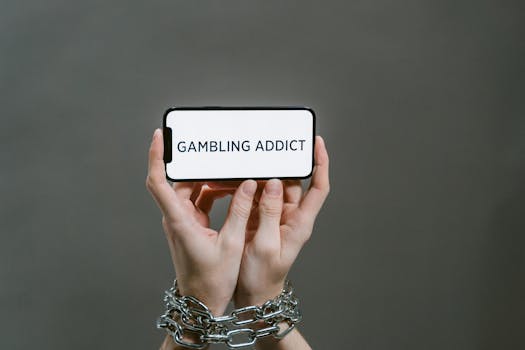The Role of Stress in Gambling Addiction
Gambling addiction, also known as problem gambling or compulsive gambling, is a serious condition that can lead to significant personal, financial, and social consequences. A critical factor often linked to the development and perpetuation of gambling addiction is stress. Understanding the role of stress in gambling addiction is crucial for developing effective strategies to manage and treat this disorder.
Understanding the Link Between Stress and Gambling Addiction
Stress is a natural response to challenges or demands in one’s life. However, chronic stress can lead to various mental health issues, including anxiety and depression, which are common in problem gamblers. The relief from stress that gambling appears to provide is short-lived, creating a vicious cycle that can exacerbate both stress and gambling behaviors.
Studies have shown that gambling can trigger the brain’s reward system much like drugs or alcohol can, leading to addiction. When individuals are under stress, they may turn to gambling to escape or distract themselves from their problems, leading to a temporary sense of relief. However, the financial, emotional, and social consequences of gambling only contribute to increased stress, creating a cycle that is difficult to break.
Strategies to Manage Stress and Reduce Gambling Addiction
Cognitive Behavioral Therapy (CBT)
Advantages: Cognitive Behavioral Therapy (CBT) is a widely recognized approach in treating gambling addiction. CBT helps individuals build coping skills to handle stressful situations without resorting to gambling. It also addresses irrational beliefs and behaviors that contribute to gambling addiction.
Disadvantages: CBT requires regular sessions with a trained therapist, which can be time-consuming and costly. Additionally, its effectiveness can depend heavily on the individual’s commitment to change.
Mindfulness and Meditation
Advantages: Mindfulness and meditation are effective in reducing stress by enhancing emotional regulation and reducing tendencies towards impulsivity, which is often a trait in problem gamblers. These practices can be done at home and are low-cost options for stress management.
Disadvantages: For some, these techniques might not appeal or provide enough structure compared to more traditional therapies. They also require consistent practice to be effective.
Lifestyle Changes
Advantages: Improving overall lifestyle through regular exercise, healthy eating, and good sleep can significantly reduce stress levels. These changes can also improve one’s overall health, providing more energy and a better mood to tackle issues related to gambling addiction.
Disadvantages: Lifestyle changes require significant self-discipline and may take time to show results in relation to stress and gambling behaviors.
Practical Examples
John, a 45-year-old accountant, experienced severe stress from his job and began gambling as a way to cope. After accumulating debt, John sought help through CBT, where he learned to identify and modify his beliefs about gambling, and developed new coping skills for stress. Additionally, he took up running and meditation, which provided him with healthy alternatives for stress relief.
Conclusion
The role of stress in gambling addiction is significant, as it both triggers and exacerbates the cycle of addiction. Effective management of stress is crucial in the treatment of gambling addiction. Approaches like Cognitive Behavioral Therapy, mindfulness and meditation, and lifestyle changes each offer benefits and drawbacks. However, a combined approach that includes professional therapy, self-help strategies, and lifestyle changes may offer the best chance for overcoming gambling addiction.
For those struggling with gambling addiction, seeking professional help and considering multiple strategies for stress management is recommended. Remember, it's important to not only focus on the gambling behaviors but also on the underlying issues like stress that contribute to the addiction.
If you or someone you know is dealing with problem gambling, resources such as the National Council on Problem Gambling (www.ncpgambling.org) can provide support and help in finding local treatment services.

.png)



